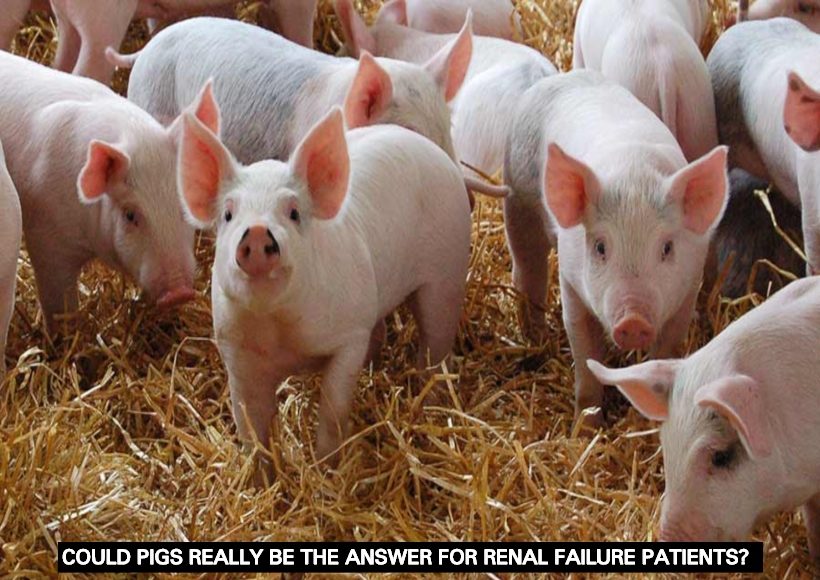Have you ever heard of the term xenotransplantation? Well we at Guyana Standard only heard of it for the first time this past week. It is a very interesting term and may invoke a lot of ideas for many within health sectors across the globe, especially those catering to renal failure patients.
Renal failure patients who are aware or are now learning of Xenotransplantation are likely to take keen, if not emotional, note.
In a recent article authored by Dr. Parsia Vagefi of the Dallas, Texas, United States UT Southwestern Medical Centre, it was noted that “For many people with kidney disease, the best treatment option is a kidney transplant to replace their non-functioning organ.”
But, with the usual high number of persons awaiting a kidney transplant, survivability for kidney failure patients may not be possible. This therefore means that such patients will be reliant on dialysis until their demise.
Dialysis is the process of removing excess water, solutes and toxins from the blood in people whose kidneys can no longer perform these functions.
However, many people are aware, and it was highlighted by Dr. Vagefi, that organs can come from deceased or living donors, but, “demand far exceeds availability, and we don’t expect this trend to change anytime soon. So, what are patients to do?”
Dr. Vagefi noted that as researchers scramble for options, one potential innovation gaining momentum is xenotransplantation.
Xenotransplantation is the transplanting of healthy animal organs, tissues, and cells into humans.
Dr. Vagefi revealed that for kidney failure patients, recent studies suggest that pigs’ organs might provide the best outcomes.
Why pig kidneys?
For starters, Dr Vagefi explained, that pig and human kidneys are similar in size and function. However, while xenotransplantation using pig kidneys has been studied for several decades, he noted that “there remain obstacles that must be overcome before we can consider pig-to-human kidney transplantation safe enough for human trials.”
He added, “Xenografts, which are tissue grafts or organs that are transplanted from one species to another, typically cause more severe immune responses than what we’ve seen in same-species transplantation.”
In primate trials for instance, he pointed out that researchers have observed non-human primate’s immune systems attacking the sugars and proteins found only on the cell surfaces of pig kidneys. This typically leads to xenograft failure, or the primate’s body being unable to accept the pig kidney, which results in the need for a new transplant, or return to dialysis, Dr. Vagefi added.
The future of xenotransplantation
Moreover, he has divulged that “Researchers are now genetically engineering pig kidneys to potentially become more suitable for human transplantation in the future. By replacing certain pig kidney proteins with human proteins, researchers hope to reduce the severity of immune responses, and the incompatibilities between humans and pigs, and thus allow for humans to accept pig organs.”
With each advancement, researchers are approaching human trials for xenotransplantation. However, Dr. Vagefi has noted that “The ongoing research is extensive, and it is hard to predict when it will become a reality – but it appears to be coming. And when the procedure and recovery are perfect, xenotransplantation will provide a new lease on life for thousands of people on the kidney transplant waitlists.”









